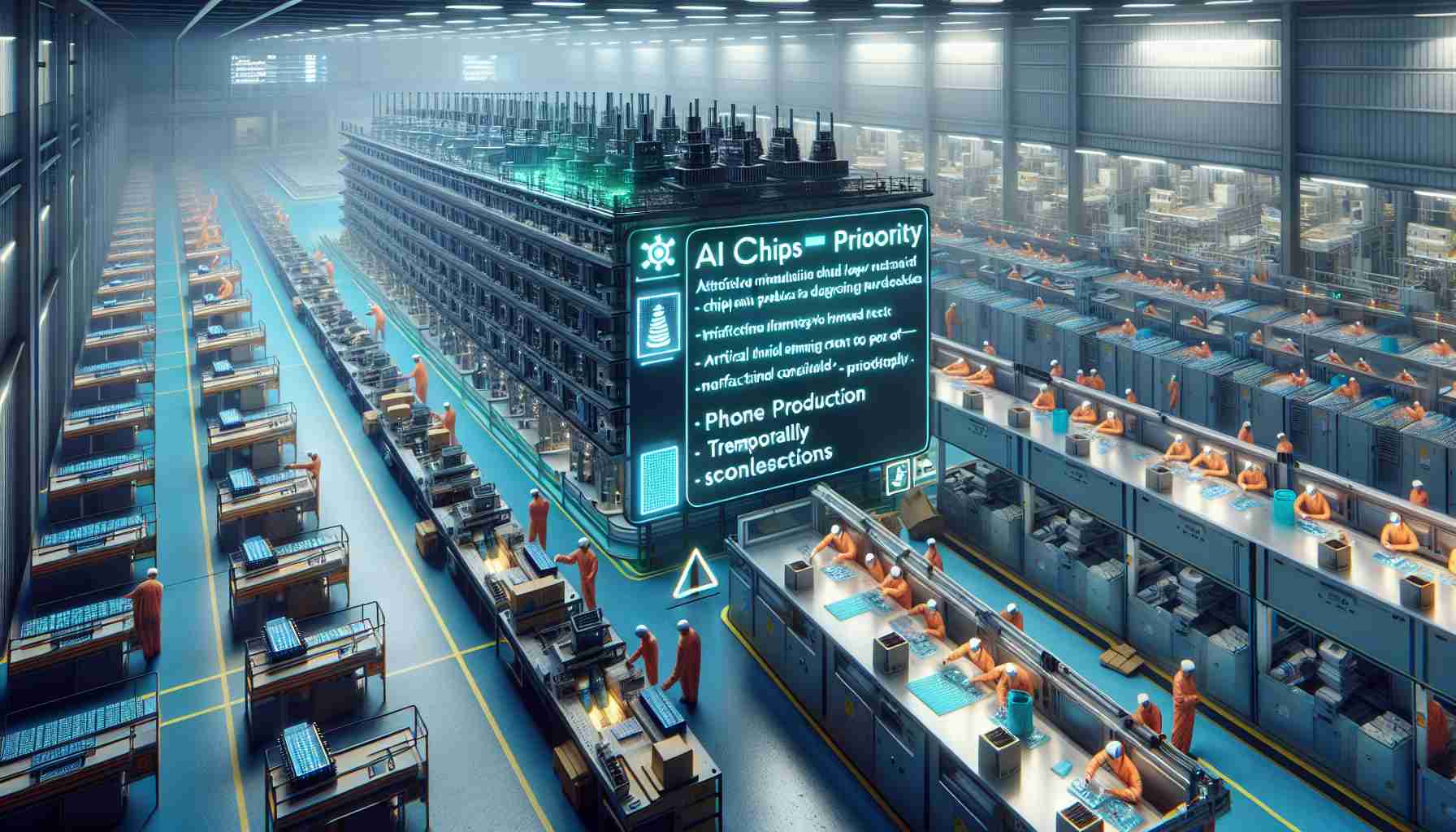Huawei, the Chinese tech giant, is facing manufacturing constraints as it struggles to meet the soaring demand for its artificial intelligence (AI) chips. This has resulted in the company prioritizing the production of AI chips over its premium Mate 60 phones, according to sources familiar with the matter.
The low yield rate of Huawei’s facility, which produces both the Ascend AI chips and the Kirin chips that power its smartphones, has hampered the output, affecting the production quality. The demand for AI functionality has intensified amidst the ongoing Sino-US technological standoff, pushing Huawei to slow down the production of its handsets, just as the company reclaims the top spot in Chinese smartphone sales after three years.
While Huawei has faced challenges following US sanctions in 2019, which restricted its access to advanced chipmaking tools, the impact of US restrictions on AI processing chip sales to China is also being felt. The restrictions have led to increased demand for domestic alternatives, such as Huawei’s Ascend series.
The Chinese government has taken steps to improve China’s computing power, prompting local authorities to invest in data center projects and driving both public and private demand for Huawei’s Ascend chips. The Ascend 910B chip is considered to be one of the most competitive non-Nvidia AI chips in China.
To address the manufacturing constraints, Huawei has decided to prioritize the production of its Ascend chips, leading to a slowdown in the manufacturing of Mate 60 smartphones. The company is also working on improving its yield rate to ensure this arrangement is temporary.
Despite the production challenges, Huawei’s Mate 60 series has contributed significantly to the company’s resurgence in the Chinese smartphone market. The phones have been consistently in high demand, with customers facing month-long waiting times for pre-orders to be fulfilled.
Furthermore, the production bottleneck has also affected other Huawei products, including the Ascend-equipped computing unit MDC 810, which powers advanced driver assistance systems in Chinese automakers’ flagship models.
While Huawei continues to navigate these manufacturing constraints, the company’s focus on AI chips highlights its commitment to innovation and technological advancement in an increasingly competitive market.
Huawei FAQ
1. What is Huawei facing in terms of manufacturing constraints?
– Huawei is facing manufacturing constraints due to the high demand for its artificial intelligence (AI) chips.
– The company is prioritizing the production of AI chips over its premium Mate 60 phones.
2. How has the low yield rate of Huawei’s facility affected production?
– The low yield rate has affected the production quality of both the Ascend AI chips and the Kirin chips used in Huawei smartphones.
3. What has intensified the demand for AI functionality?
– The ongoing Sino-US technological standoff has intensified the demand for AI functionality.
4. What impact have US restrictions had on Huawei’s AI processing chip sales to China?
– The US restrictions have led to increased demand for domestic alternatives, such as Huawei’s Ascend series.
5. What steps has the Chinese government taken to improve China’s computing power?
– The Chinese government has invested in data center projects and driven both public and private demand for Huawei’s Ascend chips.
6. How has Huawei addressed the manufacturing constraints?
– Huawei has decided to prioritize the production of its Ascend chips, leading to a slowdown in the manufacturing of Mate 60 smartphones.
– The company is also working on improving its yield rate to ensure this arrangement is temporary.
7. How has the production bottleneck affected other Huawei products?
– The production bottleneck has affected other Huawei products, including the Ascend-equipped computing unit MDC 810 used in Chinese automakers’ flagship models.
8. What does Huawei’s focus on AI chips reflect?
– Huawei’s focus on AI chips reflects its commitment to innovation and technological advancement in a competitive market.
Key Terms:
– AI chips: Chips specifically designed to enable artificial intelligence functionality.
– Sino-US technological standoff: The ongoing technological competition and conflicts between China and the United States.
– Yield rate: The measure of production efficiency, indicating the percentage of usable units produced.
Related Links:
– Huawei Official Website
– Huawei News

